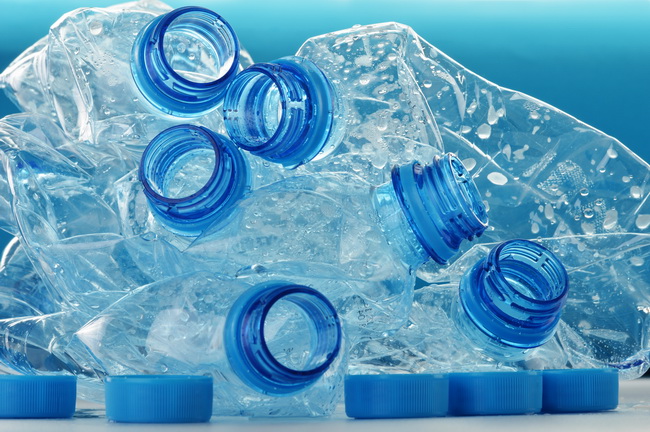- Make It Yourself Lavender Heart-Shaped Bath Bombs!
- 20 Things You Never Knew About “Down There”
- 12 Best Foods For Those Suffering From Arthritis Pain
- 12 Personal Hygiene Mistakes Almost Everyone Makes (Mom Never Told You About #4!)
- 15 Medicinal Plants And Herbs From The Cherokee People
- 12 Mind-Blowing Benefits Of Drinking Coconut Water During Pregnancy
- 12 Outstanding Winter Foods That Won’t Fatten You Up Like A Christmas Turkey
Are Plastic Bottles Messing With Your Health?

Photo credit: bigstock.com
The Effects of Plastics on Your Physical Health
Plastic bottles and food containers are convenient, but there are chemicals within them which can have potentially serious and harmful effects on your body. You may have heard the term “BPA” before, but many people still do not know what it means, or why they should care. BPA stands for bisphenol-A. This compound found in almost all plastic bottles can seep into the liquid and contaminate it. When you ingest BPA, it can lead to hormonal problems. One study found that BPA exposure led to inflammation in the mammary tissue and prostates of lab mice.
The average adult consumes 1 microgram of BPA for every 1 kilogram (2.2 pounds) of bodyweight. Infants however are often exposed to much higher concentrations, since plastic baby bottles often contain BPA.
BPA belongs to a larger class of chemicals classified as xenoestrogens. These chemicals are similar to the natural female sex hormone but come from outside the body, and when ingested can produce hormonal imbalances in the body. This can contribute to children beginning puberty too early, breast development in men, lowered libido, impotency, and a host of other health problems.
Plastic contamination is more likely to happen when the plastic is heated, so don’t drink from bottles left in the sun and don’t heat food in the microwave in plastic containers.
READ ALSO: The Problem With All This Plastic (It’s A Bigger Problem Than You Think!)
BPA-free plastic bottles are becoming more widely available. The other option is to just go with good old fashioned glass and ceramics. The containers are reasonably durable, reusable, and do not contaminate your food or beverages whether they are exposed to heat or not. Buy a reusable water bottle, and don’t buy drinks in disposable bottles- most of which are loaded with sugar and shouldn’t be consumed anyway. Making small lifestyle changes like this are not difficult, and can go a long way towards protecting yourself from plastic-linked health problems in the long run.
References:
































